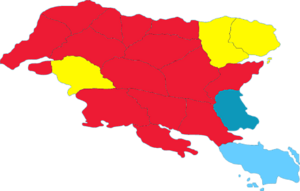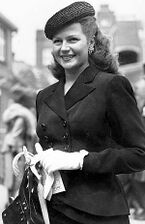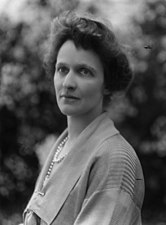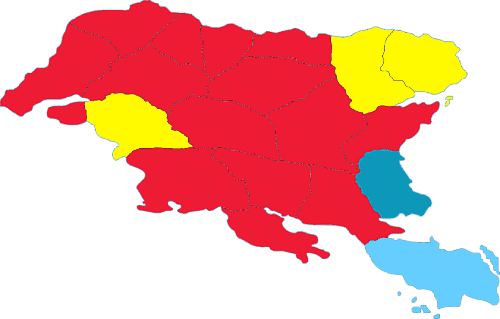Gylian presidential election, 1961
| |||||||||||||||||
| Turnout | 95,2% | ||||||||||||||||
|---|---|---|---|---|---|---|---|---|---|---|---|---|---|---|---|---|---|
| |||||||||||||||||
 Results of the first preference distribution by region Reda Kazan Hildegard Riese Donatella Rossetti Junko Maruo | |||||||||||||||||
| |||||||||||||||||
A presidential election were held in Gylias on 22 May 1961. It was the first presidential election, held after the Constitution was adopted and the post established.
Several well-known political and civic figures ran for office, establishing the tone and character of subsequent presidential elections. Reda Kazan, supported by the Progressive Alliance, unexpectedly won a majority of first preference votes, and was elected without any further distribution.
Procedure
The election was held through instant-runoff voting.
Candidates were registered with Elections Gylias in accordance with normal procedures. They could either be nominated by a political party or electoral bloc, civic organisations, or self-nomination as independents.
Candidates
| Candidate | Nominator | Office(s) held | Details | ||
|---|---|---|---|---|---|
| Reda Kazan | 
|
Progressive Alliance | None | Campaigned on promotion of culture, the arts, and socialised luxury. | |
| Hildegard Riese | 
|
Union for a New Republic | None | Campaigned as the main conservative candidate. | |
| Donatella Rossetti | 
|
Liberal Union | Governor of Alscia (1908–1939) Delegate to the General Council (1939–1958) Member of the Popular Assembly (since 1958) |
Campaigned as the main Donatellist–liberal candidate. | |
| Arlette Gaubert | 
|
Centre Group | Chief executive of Gaulette (1914–1939) Delegate to the General Council (1940–1958) Member of the Popular Assembly (since 1958) |
Campaigned on promotion of industrial paternalism. | |
| Françoise Chatelain | 
|
OMFLG–ACFEN | None | Campaigned on promotion of francité. | |
| Junko Maruo | 
|
Veterans for a Just Peace | None | Campaigned on Liberation War veterans' issues. | |
| Luiza Monteira | 
|
Centre of Constitutional Monarchists | None | Campaigned on promotion of monarchism. | |
Results
| Candidate | Nominator | First count | % | |
|---|---|---|---|---|
| Reda Kazan | PA | 2.216.758 | 50,1% | |
| Hildegard Riese | UNR | 606.179 | 13,7% | |
| Donatella Rossetti | LU | 451.316 | 10,2% | |
| Arlette Gaubert | CG | 424.768 | 9,6% | |
| Françoise Chatelain | OMFLG–ACFEN | 331.850 | 7,5% | |
| Junko Maruo | VFJP | 199.110 | 4,5% | |
| Luiza Monteira | CCM | 141.589 | 3,2% | |
| Others/write-ins | 53.096 | 1,2% | ||
| Total | 4.424.668 | 100% | ||
| Registered voters and turnout | 4.682.882 | 95,2% | ||
Map
Analysis
In contrast to the 1958 Popular Assembly election, which used nationwide party-list proportional representation, this was the first federal election to use ranked voting and regional counts, allowing for a better measurement of federal political trends.
Reda Kazan's stature as an iconic figure of the Free Territories, backed with the support of the Progressive Alliance, proved an insurmountable advantage. Her campaign themes included promotion of culture and the arts, support of socialised luxury as rationing was recently abolished, and a promise to use her stature to preserve the Free Territories' revolutionary heritage. This helped her construct a large coalition that propelled her to victory.
Reda won pluralities or majorities in almost all regions. The exceptions were Arxaþ and Alţira, where the bulk of the vote was monopolised by Donatella Rossetti, Hildegard Riese, and Arlette Gaubert; Elena, which Donatella won by a plurality; Herlan, where the ongoing Arnak Trials propelled the VFJP's Junko Maruo to a plurality; and Nerveiík-Iárus-Daláyk, which Hildegard Riese won by a plurality.
Although Reda's victory was somewhat expected, its scale surprised the public. Reda won 50,1% of first preference votes, amassing a 1,6 million vote lead over the second-placed candidate, Hildegard. She was thus elected on the first count, with no further preference distribution necessary.


